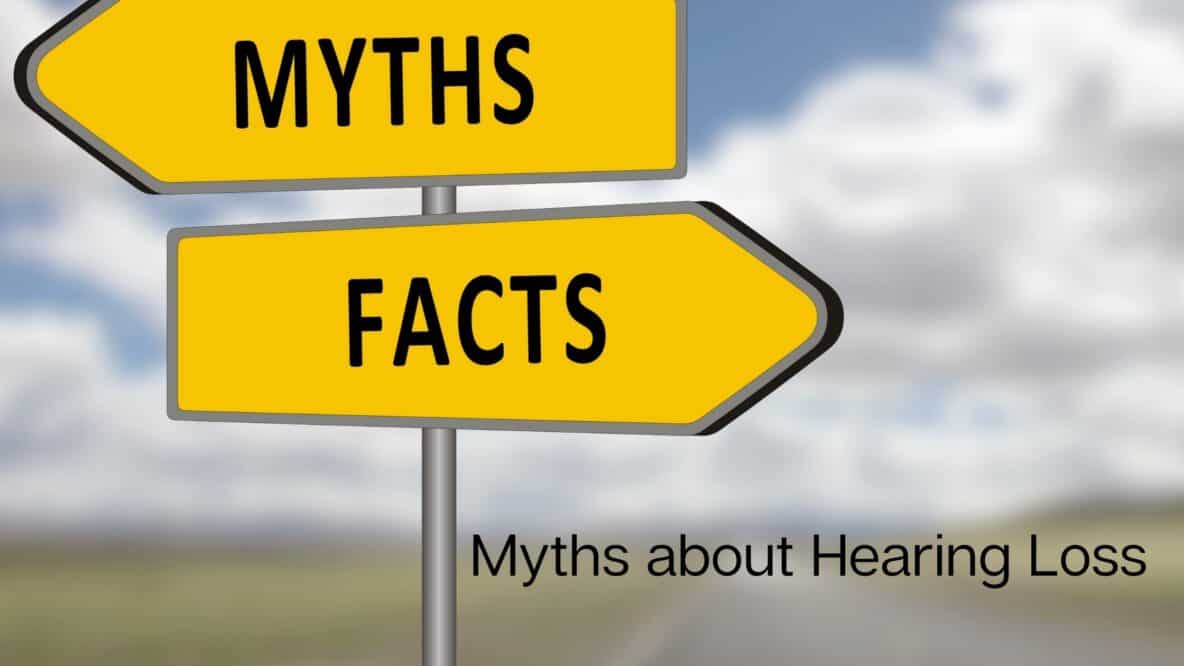There are numerous myths and misconceptions when it comes to hearing loss. Though hearing loss is one of the most common medical conditions people experience today, it is still widely unknown. Misconceptions related to hearing loss contribute to a delay in addressing symptoms early. It takes an average of 7 years for people to seek treatment for hearing loss which can take a toll on health in numerous ways. Deconstructing the most common myths can help you learn more about hearing loss and the importance of early intervention.
- Hearing loss only impacts older adults. One of the first things people assume about hearing loss is that only aging adults experience it. While it is true that older adults are disproportionately impacted by hearing loss, it is a condition that can develop at any age. Aging is not the only cause of hearing loss, other factors that can contribute to its development include exposure to loud noise, medical conditions, inner ear disorders, and head injuries. These factors can and are experienced by people of all ages.
One-time or consistent exposure to loud noise is a huge cause of hearing loss. And with the increased use of personal audio devices among younger adults today, the risk of developing noise-induced hearing loss is also increasing. The World Health Organization estimates that over 1 billion people – ages 12-35 – are at an increased risk of developing hearing loss due to loud noise exposure.
- I can still hear so it’s not that bad. People often think that because they can still hear, this means that their hearing loss is not that bad or serious. It is important to know that hearing loss typically happens gradually over a longer period. Early symptoms include being able to hear but not as clearly. As a progressive condition, these symptoms can worsen if hearing loss remains untreated. Experiencing any level of difficulty with hearing shows that you are experiencing changes to your hearing health. Hearing impairment and symptoms can exacerbate the longer one waits to seek treatment.
- Hearing loss only affects your hearing. Part of why it is often thought that hearing loss is not a serious condition is because a common misconception is that it only (and minimally) impacts hearing. The far-reaching effects of untreated hearing loss tend to be overlooked or not known about. But if you think about it, hearing plays such a major role in how we navigate our daily life. It is central to communication, spending time with others, managing work responsibilities, and engaging in favorite activities. So when hearing loss remains untreated, it can produce effects that impact all areas of life. This includes: social withdrawal, straining relationships, and increasing health risks. Extensive research shows that untreated hearing loss can increase the risk of cognitive decline, depression, and accidental injuries. This highlights that hearing loss can be deeply impactful.
- Treating hearing loss can wait until it’s severe. Various studies show that people often report that they have yet to treat hearing issues because they aren’t severe. It is important to know that hearing loss exists on a spectrum, meaning that impairment can range from mild to severe. Untreated hearing loss can deepen impairment which can also take a toll on health by contributing to the development of additional health issues. Treating hearing loss early can prevent this and also help protect hearing from further irreparable damage.
- Hearing aids are outdated and bulky. The stigma associated with hearing loss also comes from the assumption that hearing aids are these outdated and all too noticeable devices. When you imagine a hearing aid, you likely picture a bulky and unappealing device that you wouldn’t want to wear. But today’s hearing aids, like many electronic devices, have experienced so much innovation. Hearing aids are sleeker and more innovative than ever before. There is a wide range of styles, features, and technologies that are designed to seamlessly integrate the device into daily life. This includes different colors, sizes, and features that deliver enhanced sound quality. Today’s hearing aids are exciting pieces of wearable technology that transform hearing and communication.
Contact us to learn more about hearing loss and ways you can benefit from treatment. Scheduling an appointment for a hearing consultation is the first step towards transforming your health and wellness.

